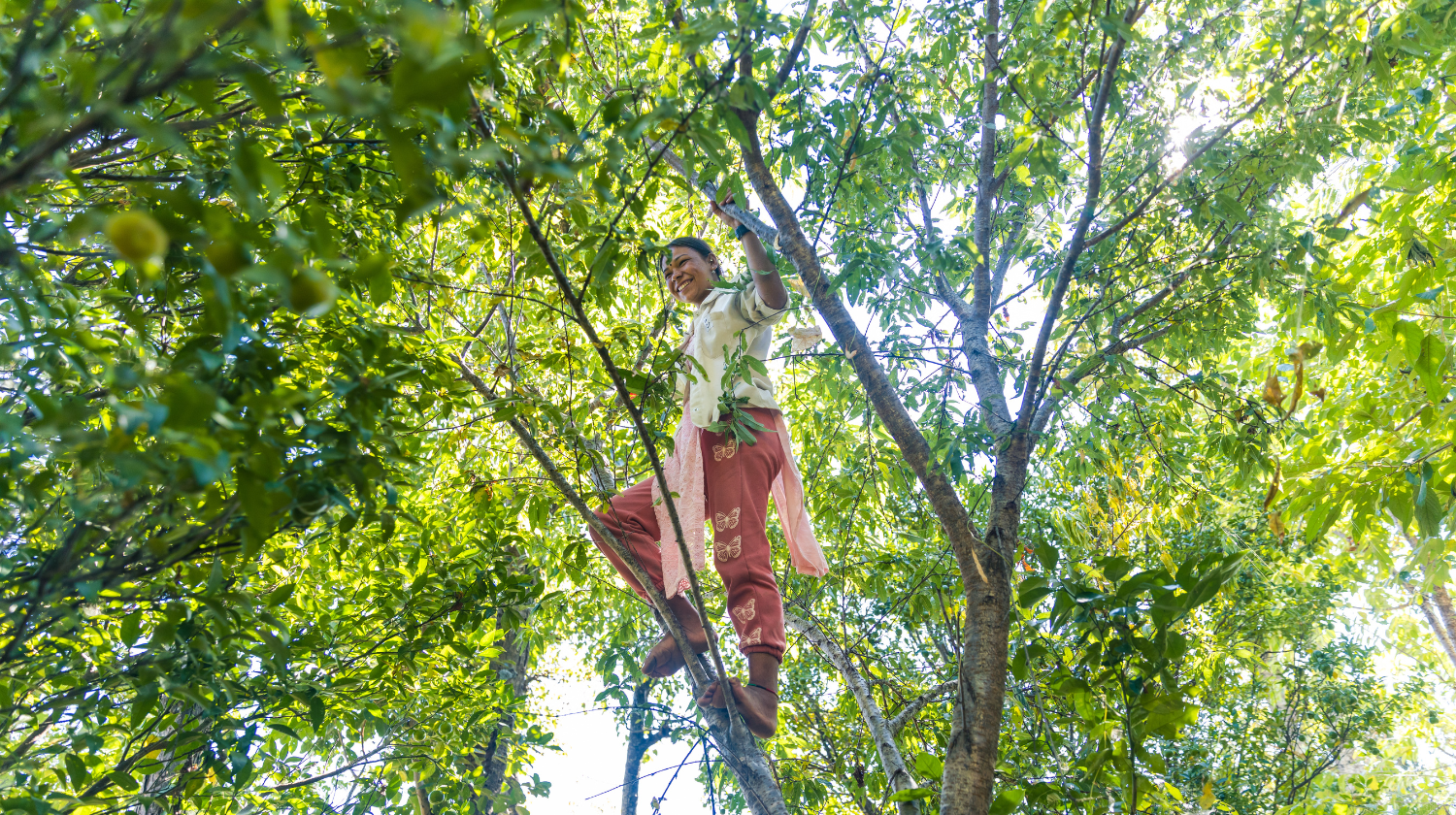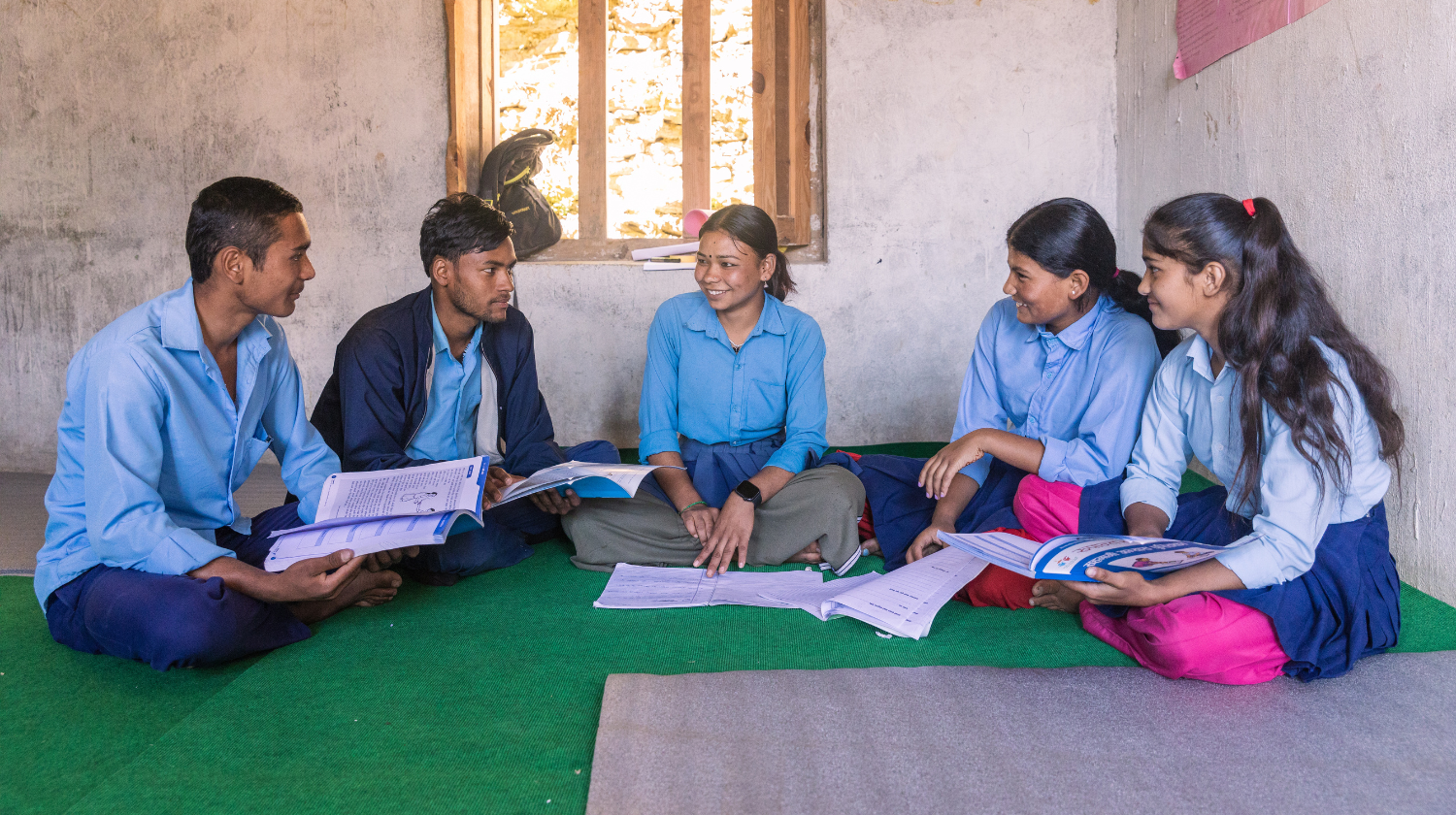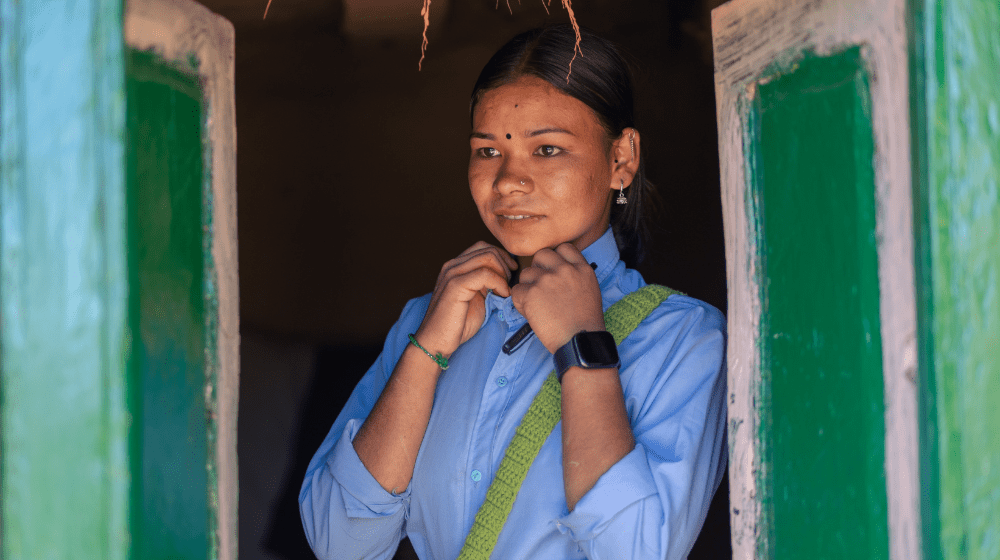“I didn’t even know that violence against me was unacceptable. I just continued to endure the violence from my husband since I got married five years ago, until I just couldn't anymore” says a survivor of gender-based violence from the East of Nepal.
Today, this mother of three, is one of many survivors supported by over 80 One-Stop Crisis Management Centres located across the country.
She continues to say, “the support I have received has given me the lifeline I needed after feeling trapped in my marriage, in a cycle of violence. I have now moved in with my parents and I am learning a lot about myself and finally feel safe.”
At these UNFPA-supported centres, an initial triage session is set up, where a survivor receives a medical examination to check for injuries, and the trained staff record case files. If required, the survivor is referred to appropriate support services that include assistance ranging from medical services, legal support and shelters as well as dispute resolution actors in local authorities. Psychosocial support services and counselling are also available in these centres, providing survivors with the holistic care that they need.
Kriti Gupta, the person in charge of this centre explains “These services are provided free of cost and they are very important. Some of these cases are very critical and women feel hopeless. Many incidents happen in the home which affect not just the women, but also the children. Many of the women continue to face the violence because of their dependence on the perpetrator. They feel there is no way out.”
With the continued support from the centre, as well as from her parents, the cycle of violence experienced by a survivor is broken. This is testament to the fact that the one-stop crisis management centres are a critical point of contact for survivors in helping to rebuild their lives.
UNFPA also works to prevent gender-based violence through several strategic tailored initiatives like the ‘Rupantaran’ (‘transformation’) sessions in Nepal, which equip young people with life skills and knowledge on key issues such as challenging discriminatory gender stereotypes and norms that could trigger gender-based violence and harmful practices.
17 year-old Rupa is one such participant of these sessions from the far-west of Nepal. Her parents believed that daughters should be married off early, and they would discriminate between their son and daughter in many aspects – from clothing to food and education. Rupa was also made to adhere to the practice of chhaupadi which forced her to be isolated in a separate space outside her family house during her menstruation with no access to nutritional food such as dairy products. She was also confined to do things that “daughters were supposed to do” - cook, clean and “stay indoors and behave like a girl’’. Climbing trees was not part of the accepted behavior for a girl, although she loved to be out in nature, free to run around.

As Rupa continued to follow the ‘transformation’ course, her parents were also encouraged to join the package tailored for adults. This reinforced the messages that Rupa took home with her and overtime, her family started to realize that things needed to change in the homefront.
Gradually, the family started making drastic changes in how they live. Rupa and her brother now receive equal amounts of milk and nutritious food, they both engage in household chores and they both support their parents in the work that they do.
“After attending the Rupantaran sessions, I realised how much our thinking needed to change. Today, as a family, we live our lives so differently. I am now sharing these messages to my peers in school as well,” says Rupa.

All forms of gender-based violence, including discriminatory harmful practices that value a son over a daughter, must end now! This resonates with the landmark International Conference on Population and Development in 1994, which called for placing people’s dignity and rights at the heart of sustainable development. This is not possible to achieve without prioritizing human rights, empowering women and girls and addressing inequalities and inequities.



